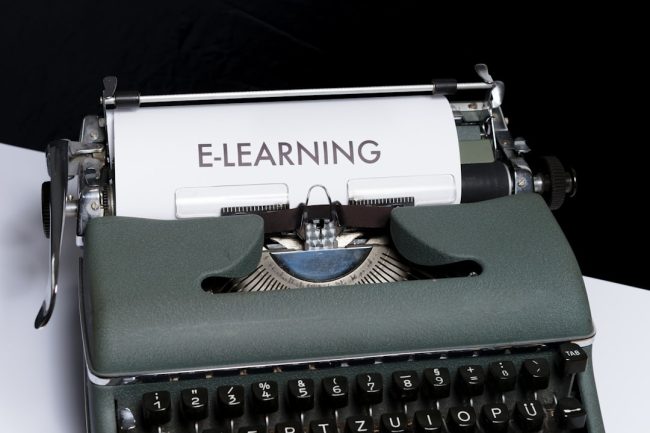The Path to Success: Enhancing New Hire Readiness In today’s fast-paced business environment, the importance of new hire readiness cannot be overstated. Businesses that place a high priority on efficient onboarding procedures not only increase employee satisfaction but also boost productivity and retention rates. New hires frequently have a lot of energy and potential, but that potential can quickly fade if they don’t receive the proper support and direction.
Businesses can make sure that their new hires have the skills and information they need to succeed right away by investing in a thorough onboarding strategy. More than just giving new hires a desk & a computer, new hire readiness involves fostering an atmosphere where workers feel appreciated, welcomed, & ready to contribute. Organizations set themselves up for long-term success by taking the time to create a structured onboarding process. This entails acquainting new hires with their responsibilities as well as integrating them into the company’s culture and coordinating them with its objectives.
As a result, employees are motivated, engaged, and prepared to take on challenges. The foundation of new hire preparedness is a successful onboarding procedure. It acts as a link between hiring and complete company integration. A well-thought-out onboarding program should include a variety of components, such as social interaction opportunities, training modules, and orientation sessions. Organizations can assist new hires in understanding their role within the broader context of the business by giving them a thorough overview of the company’s mission, values, & expectations. Also, a successful onboarding procedure ought to be customized to each new hire’s unique requirements.
Role-specific training, introductions to important team members, and access to resources that will facilitate their transition are some examples of this personalization. Organizations can establish a more inclusive workplace that promotes development by acknowledging that every employee has distinct experiences and abilities. In the end, a careful onboarding procedure not only improves preparedness for new hires but also establishes a favorable work environment. For new hires to understand what is expected of them in their roles, it is crucial to set clear expectations & goals. Employees are more likely to feel confident in their skills and driven to accomplish their goals when they are aware of what is expected of them.
Open communication between managers & new hires during the onboarding process can help achieve this clarity. Establishing SMART goals—specific, measurable, achievable, relevant, and time-bound—can offer a path to success. Apart from delineating individual responsibilities, it is crucial for organizations to convey how these objectives correspond with more general company goals. This relationship enables new hires to comprehend how their contributions affect the organization as a whole & to see the wider picture. Businesses can develop a workforce that is not only engaged but also dedicated to accomplishing common objectives by cultivating this sense of purpose.
Opportunities for training & development are essential to being prepared for new hires. Giving staff members access to continuing education materials not only improves their abilities but also shows the company’s dedication to their professional development. Formal training programs, online courses, workshops, and even mentorship opportunities can fall under this category.
Organizations can foster a culture of ongoing learning that is advantageous to both individuals and the business by investing in employee development. Also, training should not be a one-time event but rather a continuous process. Employees must keep up with industry trends & best practices as industries change & new technologies appear. Businesses that place a high priority on ongoing training not only empower their staff but also establish themselves as industry leaders. Businesses can make sure that their employees are flexible and prepared to take on new challenges by encouraging a culture of learning.
In order to help new hires adjust to their roles and the company culture, mentoring is essential. As new hires adjust to their new surroundings, matching them with seasoned mentors can offer them insightful advice. Mentors can help in a number of ways, such as by sharing best practices & giving performance evaluations. In order to develop trust within the company, this relationship promotes open communication and a sense of belonging.
In addition to official mentorship programs, companies should foster an atmosphere where staff members feel at ease asking for help from supervisors and peers. New hires may feel less alone in their roles and more a part of their teams if cooperation and candid communication are encouraged. Companies can promote a culture of teamwork and increase employee engagement and retention by creating a supportive environment.
For new hires to be prepared, regular performance reviews & feedback are essential. Employees can advance in their positions by understanding their strengths & areas for development with the support of constructive criticism. Establishing a feedback loop that promotes continuous communication between managers and new hires is a good idea.
Regular check-ins, performance evaluations, or casual conversations about advancement can all fall under this category. Fair & transparent performance reviews should be created with a focus on particular standards that correspond with the objectives established during onboarding. Organizations can assist new hires in understanding how their performance will be evaluated by providing clear success metrics. Also, by including self-assessment in the evaluation process, staff members can consider their own development and pinpoint areas in which they might require more assistance or instruction.
For new hires to feel engaged & like they belong, they must be integrated into the company culture. In addition to drawing in top talent, a strong corporate culture helps retain workers who share the organization’s goals & values. Organizations should actively promote their culture during the onboarding process through team-building exercises, social gatherings, and collaboration opportunities in order to facilitate this integration. Encouraging new hires to take part in volunteer work or company initiatives can also foster deeper relationships between them and their coworkers.
New hires are more likely to feel committed to the success of the company and invested in their work if they are fully integrated into the culture from the beginning. In the end, reduced turnover & increased job satisfaction are the results of a strong cultural fit. Organizations must embrace continuous improvement and adaptation in their onboarding processes because the nature of work is ever-changing.
Companies can pinpoint areas for improvement & make adjustments based on employee input and industry best practices by routinely evaluating the success of onboarding programs. The organization as a whole is strengthened by this dedication to improvement, which also benefits new hires. Also, companies should continue to be flexible in modifying their onboarding tactics to accommodate the evolving demands of their workforce. Businesses need to be open to changing their onboarding strategies as remote work becomes more common and technology develops. Organizations can guarantee that they are offering a successful onboarding experience that equips new hires for success in a constantly evolving environment by staying ahead of trends & adopting new methodologies.
To sum up, improving new hire readiness is a complex process that needs careful preparation & implementation. Organizations can create an environment where new hires flourish by emphasizing efficient onboarding procedures, establishing clear expectations, offering training opportunities, cultivating mentorship relationships, encouraging feedback, integrating employees into company culture, and committing to continuous improvement. We at Designing Digitally are aware of the difficulties in creating a successful onboarding plan that is customized to your company’s particular requirements. Our team of professionals is committed to assisting you in developing stimulating learning opportunities that enable your staff members right away.
Get in touch with us right now if you’re prepared to improve your onboarding procedure and guarantee that your new hires are prepared for success. Together, we can create a more promising future for your employees.













